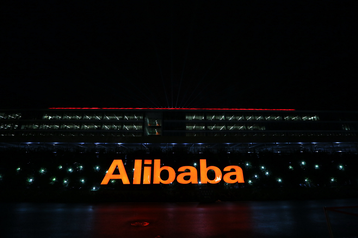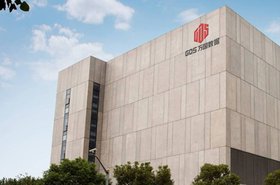Alibaba Group Holding has announced major price cuts across its cloud computing services for customers in China, reports Bloomberg.
As of February 29, the Chinese cloud provider is reducing costs for more than 100 products including data storage and elastic computing, with the largest reductions reaching 55 percent. The average price cut sits at around 20 percent.
The move was conducted in order to help the company win back users from rivals including Tencent, JD.com, and Baidu.
The cuts follow a recent and unexpected move by Alibaba to call off the spin-out of Aliyun, its cloud unit (aka Alibaba Cloud). Plans for the move were first shared in May 2023, and in September the company was considering a $3bn private funding raise for the plan.
However, by November 2023, the plan was dropped due to the US export bans on advanced chips limiting Chinese cloud companies' offering potential. The sudden U-turn led to a 10 percent drop in Alibaba's shares.
Following Alibaba's announced price cuts to its cloud offering, JD.com Inc. followed suit with sharp reductions a day later, suggesting a new price war has been triggered. In a declaration on JD's WeChat account, the company declared: "Cut all you like, let’s fight to the end!”
Chinese Governments offer start-ups 'computing vouchers' to aid competition
Another knock-on effect of the US sanctions on chip exports to China is on artificial intelligence start-ups in the country.
In light of the chip scarcity, at least 17 city governments in China have agreed to provide "computing vouchers" to AI start-ups, the Financial Times reports.
The move is due to tech giants "hogging" the computing resources, driving up costs for smaller players.
Alibaba, ByteDance, and Tencent have limited the rental of available Nvidia GPUs, keeping the AI processors for internal use and important clients, reports FT, citing sources "familiar with the situation."
“The voucher is helpful to address the cost barrier, but it won’t help with the scarcity of the resources,” said Charlie Chai, an analyst at 86Research.
China is attempting to alleviate the problem further by developing a network of state-run data centers where AI companies can also rent access to resources. The government's voucher scheme will reduce AI companies' computing costs by between 40 to 50 percent if they use government-owned data centers.
In January 2024, it was revealed that China had imported around $40bn worth of chip-making tools throughout 2023 in order to support its domestic semiconductor supply chain.
Despite US sanctions, some of the restricted chips have still found their way into the country. Also in January, it was reported that military institutions, state-run AI research centers, and universities across China have accessed Nvidia's A100s and H100s.







